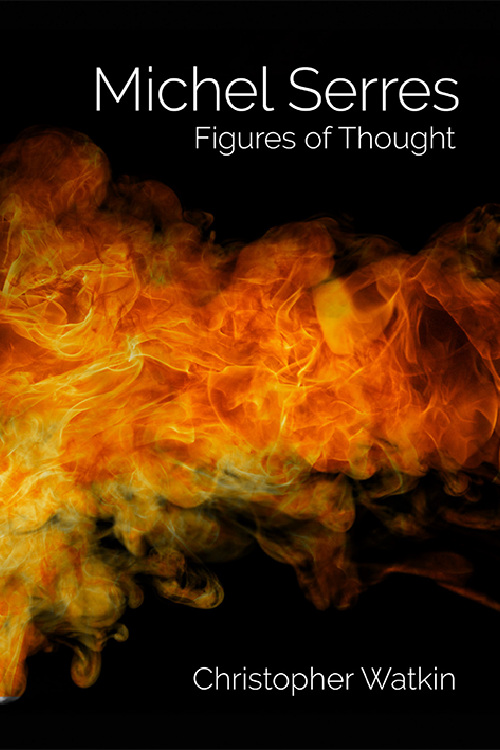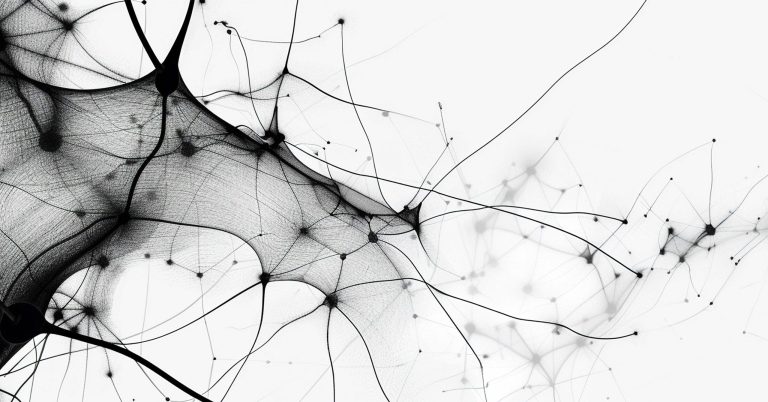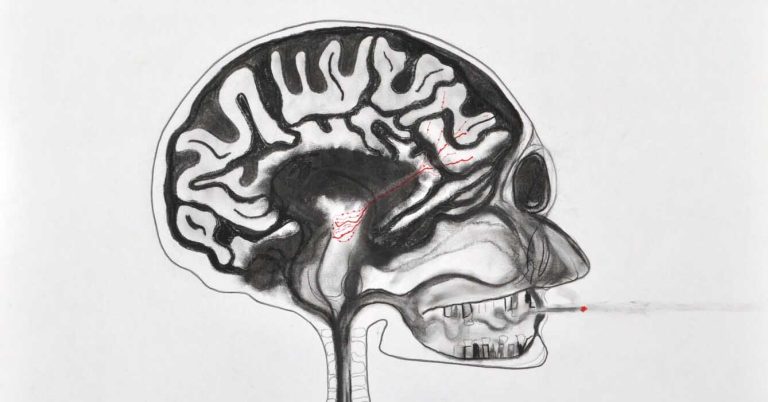
The captivating reflection of Chris Watkin on why he chose to write on Michel Serres continues below.

Hermeneutics of suspicion, hermeneutics of federation
Serres is antipathetic to the method of critique characteristic of the human sciences, and in particular to the culture of critique and the ‘hermeneutics of suspicion’that dominated the intellectual landscape in France in the latter decades of the twentieth century and still exerts a powerful influence on academic method today. Critique is consumed in judging the work of others (Her 60), and within the university system the method of critique produces stadiums full of referees ready to blow the whistle at the slightest infringement, while the pitch remains empty of players (Ec 198/C 136). The practitioners of academic critique are priests of knowledge, pronouncing ex cathedra on orthodoxy and heterodoxy, or pathologically suspicious police officers who are always tracking and questioning anyone they see (PT 32; R 33/Rom 31).
Serres’ own approach is no less incisive than the method of critique and suspicion, but it achieves its aims in a very different way. He opposes not by attacking, but by generalising. Witness this example from his early work on Leibniz: Rather than relocating the fixed point from one celestial object to another, Serres commends the Leibnizian approach of not negating Copernicus’s Revolution but generalising it to infinity ‘in order to discover that everything is centre in its way’, yielding ‘a world infinitely centered-decentered’ in a system which Serres describes as Ptolemaic-Copernican (SL 634). Everywhere is an ‘earth-sun’, variable and unvarying, moving and fixed, distinct and confused.
If there is a regular antagonist in Serres’ writing it is Descartes, but he is no straightforward enemy. In Le Système de Leibniz Serres argues that ‘Leibniz crowns and completes the Cartesian method in refusing its requisites’ (SL 232), taking what is ostensibly a universal principle and resituating it as one premise among many. In Serres’ own dense and lapidary formula, Leibniz’s attitude to Descartes’ system is that ‘he is opposed to it or generalises it’ (SL 23-4). To oppose by negation is to deny what was affirmed, but to oppose by generalisation is to show that what was affirmed is one instance of a broader reality it does not contain, like Kepler’s rejection of Ptolemy’s circles in favour of conic sections. Opposing by generalising federates the local ever more comprehensively as it inches asymptotically towards the universal. It is a mode of engagement that does not critique or deconstruct, but that nevertheless ends by destabilising. In conversation with Bruno Latour Serres implores ‘I consider exclusion as the blackest action of history, and even of humanity. No, let us not eliminate; on the contrary, let us include’ (Ec 194/C 132; translation altered), and In Rome he affirms that ‘I believe it’s possible to think without excluding’ (R 104/Ro 67). Opposing by generalising shows that it is also possible to critique and subvert without excluding, without a negative moment. Opposing by generalising is one of Serres’ distinctive ‘figures of thought’ around which the argument of Michel Serres: Figures of Thought is structured.
Genuine cross-disciplinarity
With qualifications in both mathematics and philosophy, Serres is that rarest of beasts: a genuinely cross-disciplinary thinker. In an academic climate where crowd-pleasing gestures of interdisciplinarity are all the rage, Serres’ thought is built from the bottom up on irreducibly and necessarily encyclopaedic foundations. Yes, he has written books on Lucretius and thermodynamics, and on Zola and the steam engine, but these are only the visible tips of the cross-disciplinary iceberg of Serresian thought.
To read Serres is to find oneself, sooner or later, on the outside: the mathematician finds herself an outsider to nineteenth century literature, if not to recent trends in biology. The literary scholar finds himself on unfamiliar territory with Serres’ use of the technical vocabulary of sailing, or mathematical topology. This is only a reason to avoid Serres if we demand to dominate our reading matter and then pontificate as experts at the feet of whom all others are forced to sit. To read Serres is not to master Serres, and that is a good thing. We can hear the tone of frustration in Bruno Latour’s question ‘why in the space of one paragraph, do we find ourselves with the Romans then with Jules Verne then with Indo-Europeans, then, suddenly, launched with the Challenger rocket, before ending up on the bank of the Garonne river?’ (Ec 70/C 43). To read Serres is to be adrift on at least some of the vast ocean of knowledge, barely even aware of our ignorance, to be confronted with disciplines which, whatever our speciality, we last studied at school, and this can perhaps be a discomforting experience for those driven by a critical instinct to prove themselves right and everyone else wrong.
Serres regularly confounds his readers with an ‘unpocketability’ and ‘undockability’ that wriggles free of all attempts to cloister it. Whereas many theoretical treatises take a central theme and scrutinise it centripetally from a number of different angles, Serres’ books radiate out in lavishly centrifugal diffusions, crossing disciplinary boundaries at will. As Steven Connor points out, it is precisely because Serres does not let his reader settle into a familiar thematic patter that his work ‘constitutes a thesaurus of possibilities that is much richer than that of other writers who may appear more tractable to our purposes’.
Not long into the project of writing a book on Serres’ thought I started keeping a list of all topics, writers and figures with which he engaged and with which I would have to familiarise myself. It soon became clear that this expanding catalogue of knowledge would confound even an intellect of Goethean breadth, and it stands as eloquent testimony to the unparalleled range of Serres’s thought. I reproduce it here in all its centrifugal, incomplete, federating, algorithmically structured proliferation:
Abstraction; Agriculture; Algorithm; Alterity; Andromaque; Angels; Animals; Apeiron; Aphrodite; Ariadne ; Aristotle; Arts, the; Atlas; Baal; Babel; Bachelard, Gaston; Bacon, Francis; Badiou, Alain; Balzac, Honoré de; Barthes, Roland; Baudrillard, Jean; Belle noiseuse; Belonging and identity; Bergson, Henri; Biosemiotics; biotechnology; Black box; Blanc (white/blank); Body, the; Bourbaki; Bouveresse, Jacques; Branches; Bridges; Cacography; Calendar, the; Canguilhem, Georges; Capital; Carnot, Sadi; Carpaccio, Vittore; Cartesian space; Castafiore, Bianca; Challenger shuttle; Chaos; Character-concepts; Chirality; Circumstance; City and country; Classical age, the; Clinamen; Communication; Complexity; Comte, Auguste; Corneille, Pierre; Crimes against humanity; Critical philosophy; Culture; Death; Deleuze, Gilles; Derrida, Jacques; Descartes, René; Difference (philosophy of); Diogenes and Alexander; Dom Juan; Dough; Dualism; Dumézil, Georges; Ecology; Education; Encyclopedia; Enlightenment; Evolution; Exchange value; Excluded third; Excluding exclusion; Exo-Darwinism; Fetish; Fluid dynamics; Fly, the; Foucault, Michel; French language; Gender; Geometry; Girard, René; Gironde; God; Great Story, the; Hard and soft; Harlequin and Pierrot; Hegel, Georg Friedrich Wilhelm; Heidegger, Martin; Hercules; Hergé; Hermaphrodite; Hermeneutics; Hermes; Hestia; Hiroshima; Horace; Ichnography; Identity and belonging; Inclination and declination; Information and information theory; Interdisciplinarity; Interference; Internet; Invention; Joker; Jupiter; Labyrinth; La Fontaine, Jean de; Laminar flow; Landscape; Language; Laplace, Pierre-Simon; Latour, Bruno; Left handedness; Legend; Leibniz, Gottfried Wilhelm; Linguistic philosophy; Literature; Local and global; Loganalysis; Lucretius; Malabou, Catherine; Maps; Mars; Marx, Karl; Mary (Mother of Jesus); Materialism; Mathematics; Maupassant, Guy de; Media; Meillassoux, Quentin; Merleau-Ponty, Maurice; Models and structures; Monad; Money; Monod, Jacques; Montaigne, Michel de; Music; Myth; Nancy, Jean-Luc; Narrative; Natural contract, the; Nature and culture; New Materialism; Noise; North-West Passage; Object oriented thought; Objects; Object-world; Œdipus; Ontology; Opposing by generalising; Orpheus and Eurydice; Pagus; Pantope; Pascal, Blaise; Pentecost; Percolation; Phenomenology; Pierrot; Plato; Pluralism; Posthumanism; Postmodernism; Prefix: from pre- to pan-; Prepositions; Procedural thought; Production (age of); Prometheus; Quasi-object, the; Quasi-subject, the; Quirinus; Rambling; Rancière, Jacques; Religion; Rome; Rousseau, Jean-Jacques; Sacred and secular thought; Sacrifice; Sailing; Saint Denis; Saint Paul; Sarrasine; Sartre, Jean-Paul; Scapegoat, the ; Science; Set theory; Sisyphus; Society of the Spectacle; Socrates; Sokal, Alan; Space; Spinning top; Sport; Static; Statues; Steam engine; Structuralism; Subject and object; Tarpeia; Textiles; Thanatocracy; Theology; Thermodynamics; Third, the; Thumbelina; Time; Topology; Translation; Truth; Turbulence; Turner, Joseph Mallord William; Ulysses; Umbilical thinking; Universal, the; Use value; Utopia and utopianism; Venus and Mars; Verne, Jules; Violence; War; Weather and climate; Web, the; Weil, Simone; Wikipedia; World-object; Zeno of Elea; Zola, Émile.
A global intuition
Early in my philosophical journey I encountered a passage by Paul Ricoeur that has regularly returned to me as a yardstick for evaluating a body of philosophical work. Ricœur argues that ‘all great philosophies […] are de omni re scibili, about everything knowable, but each in accordance with the unique perspective of its thetic act and of the strategy it selects to continue the positing act’. Plato can be my memory, my culture, my language. As can Marx, as can the Bible, and as can Shakespeare. Each of these can be adequate to everything. Every great philosophy, as well as all great literature, is about everything knowable.
Serres has a similar notion that he calls a ‘global intuition’, but it stretches beyond the knowable to body forth a ‘new way of being in the world’ or ‘a different style of thinking and writing – style as a method of seeing and understanding things’. Serresian global intuition is a way not merely of thinking but of living, behaving, feeling, desiring and moving in the world, of resonating with the way the world is and the way it is changing; it is a compelling feature of his writing that drew me to him and keeps me fascinated with him. Similarly to Deleuze’s, Serres’ global intuition is particularly vividly drawn and particularly successful in convincing the reader to walk a mile in Serres’ shoes. In the course of a conversation with Bruno Latour he explains that ‘my goal is not above all to be right but, rather, to produce a global intuition, profound and sensible’ (Ec 170/C 115). Serres is seeking to produce not a set of propositions or a system, but a life.
Serresian intuition strikes the ‘first blows’ of the creative process in the arts and the inventive process in the sciences; it generates the initial hypothesis that is to be tested, or the initial way of seeing the world that is to be explored. Like Nietzsche’s eternal return (see LRE), an intuition is not something that can exhaustively be explained, because it explains everything else. It need not be instantaneous, but ‘ertain great inventors confess to having received their definitive intuition in a single night, a week, a wonderful year’ (In 99/Inc 52). Intuition is also distinct from understanding. For example we can come to an understanding of the vast duration of time since the Big Bang without intuiting it (In 190/Inc 105). An intuition is in an important sense pre-rational, but it is not anti-rational or arbitrary. Indeed, new intuitions can be demanded by new circumstances, such as the development of non-Euclidean geometry requiring us to understand the world differently (see Rome).
Serresian intuition is also ‘profound and sensible’. Intuition is not exclusively intellectual but ‘[w]hatever the activity you’re involved in, the body remains the medium of intuition, memory, knowing, working and above all invention’ (VSC 31-2/VB 34). Intuition is corporeal: not a concept but a sensibility, and not only a way of thinking but a way of living in the world. It is also profound and sensible in the sense that it maintains a pre-theoretical sensitivity to what Serres calls the rhythms and sounds of existence out of which emerge meaning and language. The corporeality and pre-theoretical, pre-linguistic rhythmicality of Serresian global intuition sets it apart from the intellectualising notion of ‘worldview’ and also from Deleuze’s concept of the ‘image of thought’ in Difference and Repetition and elsewhere which, though similarly global in scope, is primarily concerned with questions of reference, truth and representation.
Invention
I find a rare freshness and a risky experimentation in Serres’ thought. The refrain that ‘to think is to invent’ echoes throughout his work. It is by bringing disparate disciplinary approaches into federating, isomorphic relations that Serres can make them ‘vibrate through synthesis, ambiguity, paradox, or the undecidable’ (NP 200/BOP 75, translation altered) causing us to see them differently. The relations instantiated and explored in Serres’ writing are themselves creative and generative of new ideas, such as the juxtaposition of law and nature in The Natural Contract which produces a new paradigm for understanding the relation between human beings and the rest of the natural world. The parasite invents (P 50/Par 35); the clinamen invents through ‘conjunctive turbulence’ (NP 170/BOP 137, translation altered); evolution invents (GB 178) and the Great Story invents (GB 117). Similarly, Serres understands philosophy as the invention of characters and concepts.
Ahead of his time
While others were noisily making news, Serres repeatedly anticipated some of the major trends of recent thought and society. In The Five Senses (1985) he was writing against the linguistic paradigm at the very moment when the linguistic turn in French thought was reaching its most paroxystic intensity, maintaining that ‘I fear those who go through life drugged, less than I fear those under the edict of language’ (CS 98/FS 92), and long before the appearance of the ‘new materialist’ and ‘object oriented’ movements that claim him as an influence. The Natural Contract, pleading for a renewed environmental responsibility and restraint on corporate destruction of the environment, hit the shelves one year after the stock market crash of 1989 and at the beginning of the early 1990s recession in France and the U.S.A., when the appetite for potentially economically harmful ecological arguments was at a low ebb.
At the heyday of Althusserian hegemony at the École Normale Supérieure, Rue d’Ulm he questioned the Marxist orthodoxy of the primacy of production, convinced that the age dominated by the production of physical goods from raw materials was being eclipsed by one characterised by communication and information transfer. From our vantage point as cross-platform media-consuming internet users, we might concede that he has a point. However, when he dared to suggest to the highly influential ENS tutor and Marx scholar Louis Althusser that the age of production was soon to be overtaken by that of communication, he was denounced as a fascist (Pan 124). It is his scepticism about the paradigm of production that also accounts for Serres’ lifelong refusal of communism, even when the affiliation was almost universal at the ENS (Pan 126). Like Nietzsche’s madman, Serres repeatedly came too early.
As far as I can plum the depths of my own motivations, these are the factors that first drew me to Serres’s thought, that held me in its orbit, and that then stoked my determination to write a book on it, however foolhardy that may in retrospect seem. As I write these lines I have just finished giving a series of lectures on Michel Serres and film. The exercise has re-affirmed for me the richness and fecundity of Serres’ thought, and how we are only now beginning to scratch the surface of how his writing can challenge and develop disciplines across the arts, humanities and social sciences. Given Serres’ own deep humanity and care for individuals, especially those overlooked in our performance-driven social and professional hierarchies, it is both a comfort and an inspiration to know that, even if he is no longer able to witness it for himself, his writing is now beginning to attract the level of attention it has long deserved.
By Chris Watkin
Originally published on https://christopherwatkin.com/2019/06/02/why-michel-serres-a-personal-reflection/

Chris Watkin is a Senior Lecturer at Monash University, Melbourne, Australia, where he teaches across French and Literary Studies. He is the author of a number of books in modern and contemporary thought, including Phenomenology or Deconstruction? (2009), Difficult Atheism (2011), and French Philosophy Today: New Figures of the Human (2016) and Michel Serres: Figures of Thought (2020). Chris is currently working on a project interrogating the concepts of freedom and liberation in contemporary thought and society in the light of what has been called the Western “emancipation narrative”. He blogs about philosophy and academic research at christopherwatkin.com, and you can find him on Twitter @DrChrisWatkin.

Christopher Watkin provides a true overview of Serres’ thinking. Using diagrams to explain Serres’ thought, the first half of the book carefully explores Serres’ ‘global intuition’ – how he understands and engages with the world – and his ‘figures of thought’, the repeated intellectual moves that characterise his unique approach. The second half explores in detail Serres’ revolutionary contributions to the areas of language, objects and ecology.
Abbreviations
BOP The Birth of Physics
C Conversations on Science, Culture and Time
Ec Éclaircissements
GB Le Gaucher boiteux
Her L’Hermaphrodite
In L’Incandescent
Inc The Incandescent
LRE Le retour éternel
NP La Naissance de la physique dans le texte de Lucrèce
P Le Parasite
Pan Pantopie: de Hermès à Petite Poucette
Par The Parasite
PT ‘Panoptic Theory’
R Rome : le livre des fondations
Ro Rome: The First Book of Foundations
SL Le Système de Leibniz et ses modèles mathématiques
Sol Solitude
T Thumbelina
TI Le Tiers-instruit
TK The Troubadour of Knowledge
VB Variations on the Body
VSC Variations sur le corps




